*cracks Open A Bag Of Candy And A Jar Of Salt* SO, HALLOWEEN PSA TIME
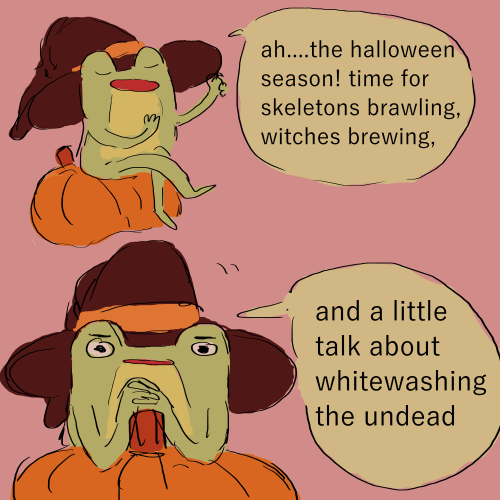

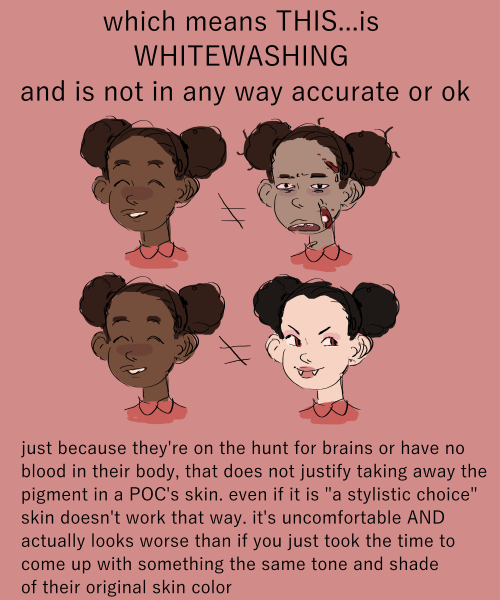

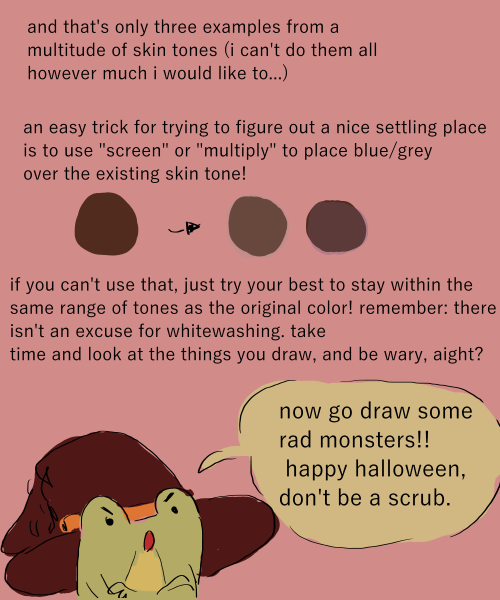
*cracks open a bag of candy and a jar of salt* SO, HALLOWEEN PSA TIME
More Posts from Mclennonlovebot and Others
I've always wondered about the Key West incident. "We ended up crying – about, you know, how wonderful we were, and how much we loved each other, even though we’d never said anything". Does that we only refer to John and Paul or to the four Beatles ?
Actually, he has changed version quite a few times. But the official one is that it was just him and John, because this story comes from the song “Here Today” (song he wrote for John) and the line “What about the night we cried”:
“WE WERE IN KEY WEST IN 1964. WE WERE DUE TO FLY INTO JACKSONVILLE, IN FLORIDA, AND DO A CONCERT THERE, BUT WE’D BEEN DIVERTED BECAUSE OF A HURRICANE. WE STAYED THERE FOR A COUPLE OF DAYS, NOT KNOWING WHAT TO DO EXCEPT, LIKE, DRINK. I REMEMBER DRINKING WAY TOO MUCH, AND HAVING ONE OF THOSE TALKING-TO-THE-TOILET BOWL EVENINGS. IT WAS DURING THAT NIGHT, WHEN WE’D ALL STAYED UP WAY TOO LATE, AND WE GOT SO PISSED THAT WE ENDED UP CRYING - ABOUT, YOU KNOW, HOW WONDERFUL WE WERE, AND HOW MUCH WE LOVED EACH OTHER, EVEN THOUGH WE’D NEVER SAID ANYTHING. IT WAS A GOOD ONE: YOU NEVER SAY ANYTHING LIKE THAT. ESPECIALLY IF YOU’RE A NORTHERN MAN.“
— Paul explaining the line “What about the night we cried?” from Here Today (Source: Guardian Unlimited, 2004)
This is from an interview on Daily Mail:
“THAT WAS IN KEY WEST, WHEN A CONCERT HAD BEEN POSTPONED, BECAUSE OF A HURRICANE IN FLORIDA. AND SO WE HAD TO HIDE OUT FOR A COUPLE OF DAYS, AND ENDED UP IN THIS LITTLE HOTEL SUITE TOGETHER.‘ONE NIGHT, WE GOT PRETTY DRUNK AND ARGUED AND LAUGHED, AND IT ENDED UP US BOTH CRYING, BECAUSE IT WAS, YOU KNOW AT THE HEIGHT OF YOUR DRUNKENNESS, WHEN YOU’RE ALL, “HEY MAN, I LOVE YOU, MAN. NO, I LOVE YOU, MAN.”’‘THAT WAS PROBABLY THE ONLY TIME WE JUST GOT THAT KIND OF INTIMATE WITH EACH OTHER"
This is from an interview in 2011 with Terry Gross:
MR. MCCARTNEY: I seem to remember we had some time off in Key West, Florida, and it was because there was a hurricane, and we’d been diverted, I think, from Jacksonville.So we had to spend a night or two in Key West, is where we ended up, anyway. And at that age, with that much time on our hands, we really didn’t know what to do with it except get drunk.And so that was what we did. And we stayed up all night talking, talking, talking like it was going out of style. And at some point early in the morning, I think we must have touched on some points that were really emotional, and we ended up crying, which was very unusual for us, because we - members of a band and young guys, we didn’t do that kind of thing. So I always remembered it as a sort of important emotional landmark.GROSS: Do you remember what you were talking about that led to that?MR. MCCARTNEY: Probably our mothers dying, because John and I shared that experience. My mother died when I was about 14, and his died shortly after - about a year or so after, I think. So this was a great bond John and I always had.We both knew the pain of it, and we both knew that we had to put on a brave face because we were sort of teenage guys, and you didn’t talk about that kind of thing where we came from.
Once or maybe twice I’ve heard this story by Paul in which he has randomly added George or Ringo too. But I’m 100% sure it was just him and John. Don’t ask me why he does that, it’s the same “We loved john” story (when Paul has to say he loves John he never says “I” he always adds random people like George Harrison and says “We all loved John”)
He probably doesn’t want the scene to be too intimate, dear god he has a serious problem with showing affection toward John in public.

this blog supports jewish lives !!





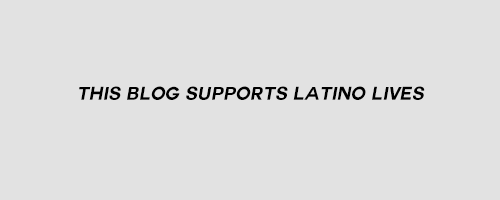
hate when people try to psychoanalyze me. all you need to know is that i think i'm the funniest person in the room and at least the second hottest at all times, and i'm mentally ill about it
John Lennon's Unique Connection To Us, and Ours To Him

Only John would have gotten the kind of reaction he did. Not just compared to Paul. Compared to anyone.
The reaction to his death had everything to do with John’s unique connection to us, and ours to him.
People gathered spontaneously by the hundreds and thousands around the world from the moment they heard the news on December 8, 1980.

On the day of his memorial, December 14, over 100,000 people came together outside his home in New York alone.
Every radio station in New York went silent for 10 minutes (not just rock stations, either: every station) as did other stations across the country.
Individuals around the world went silent, too. I certainly did, and so did many of my friends.

Here are some of the reasons that I believe that only John’s passing touched us this way, and why it still touches us.
John was OUR Beatle.
When John & Yoko moved to New York in August 1971, they never went back to England again.
More than that, John fought be here. Almost from the moment he arrived, the US government was trying to throw him out. Constant FBI surveillance, deportation hearings – it took years of battles for him just to be able to stay here at all.

The pictures of them walking to and from court (above, in March 1972) weren’t just staged for publicity. You can find hundreds of pictures of John & Yoko walking around New York, because that’s what they did.

Their address, first in Greenwich Village, then near Central Park, were public knowledge. The night of December 8, 1980, John did what he usually did. He stopped to talk to fans who had been waiting for him outside his home.
Even if you didn’t live in New York, it was very much in your mind that if you wanted to meet John, you knew you could. It was easy.
Which is also how John came to such a sudden end. John was vulnerable because he chose to live vulnerably.

The Imagine album was released 9/9/71, the single released 11/11/71
And look at the songs: “Imagine,” “Power To The People,” “Instant Karma (We All Shine On),” “Happy Xmas (War Is Over),” “Give Peace A Chance,” “All You Need Is Love” – nobody else could have written even one of these, much less all of them.
It’s easy to point to John’s hypocrisy (which John talked about as much as any of his critics did) and the fact that he was generally a blowhard with an opinion about everything and just roll your eyes, but the fact is that he genuinely aspired to a better world in a way that resonated with us.
It resonated with the people in power, too. The US government in particular was terrified of him. That’s why starting in 1971, John was constantly under FBI surveillance, and under the constant threat of being thrown out of the country.
Portions of the FBI’s files on John were kept secret until 2011 because the government said the information about John’s surveillance endangered national security!
If you’re interested, you finally can see John’s complete FBI files here, and can learn more about it in the film The US vs John Lennon.

It wasn’t until 1976 that John was granted permission to stay in the US. Below, showing off his shiny new green card.

I could go on at length about the depth and breadth of his fundraising and activism – not just anti-war, but also racial and gender equality, education (including leading a protest march for free speech for high school students!), criminal justice reforms, and much more.
The US government’s fear of John Lennon was very much rooted in reality, and we loved that about him. He was speaking for us.

The non-album single"Power to the People" was released March 22, 1971.
Remembering the way that John inspired us led to headlines like this one: “DEATH OF A HERO”

You can see the way that this still resonates when, in 2013, the gang rape and murder of a 23-year-old woman in India led 600 guitarists to gather in Darjeeling to play “Imagine” together, in both protest and hope.

John’s connection to us was also intimately personal.
Inspiration, out there, is one thing. John wanted more than that. Or you could say, he wanted less. As far as he was concerned, the world had more people wanting to be leaders than was good for us.
Instead, he wanted to touch us.
More than the other Beatles, maybe more than any musician ever, John opened himself to us.
There was the literal nakedness of theTwo Virgins album, and these famous portraits by Annie Leibovitz taken the very afternoon that John was murdered.

More important, there was also the emotional nakedness.
On Plastic Ono Band he dismantled his stardom as he howled out isolation, abandonment, and pain, side by side with songs of wounded tenderness and simplicity. It’s easily among the most personally revealing albums ever released by anyone.
Of course, he’d been doing this since the beginning, even if it wasn’t until later that he explained to us just how very desperate he felt when he wrote songs like “Help!,” “I’m A Loser,” “You’ve Got To Hide Your Love Away,” and others. While other rock stars were making drugs look cool, John was the first one I ever heard sing about the harrowing fear and and chaos they caused him, in “Cold Turkey.”
What he showed us when we got close wasn’t always pretty, including on 1971′s Imagine. The vision of the title song is right up against his confession of being a “Jealous Guy” who causes pain, and his undisguised anger at Paul in “How Do You Sleep?”
He quickly apologized to Paul, both privately and publicly, admitting that his anger ultimately had nothing to do with Paul, that it was all in John’s own head.
And that’s the thing. Some people thought of John as a saint. John didn’t.
It wasn’t (and isn’t) always easy being a fan of John’s. He could be cruel and violent, he was unfaithful to both his wives and a terrible father to his first son, he let drugs and alcohol get the better of him, and much more.
He finally figured out that he couldn’t be a rock star and be the kind of man he wanted to be, so he quit.
It’s easy to forget now, but he only headlined two concerts, both of them benefits, in 1971 and 1972. He played a few songs on stage with Elton John in 1974, but that was it for live shows. A few albums of course, but after some famous (and infamous) detours, he cleaned up, got into therapy, and became a full-time dad – the first time many of us had heard of such a thing.

Not that he’d gotten everything together by the end, not at all – but he was definitely moving in the right direction for once. He seemed happy, in some ways, for the first time in his life.
One of the final songs he recorded after his long hiatus said it was like he was starting over, and it was clear that, even more than his recording career, he was talking about his life.

And we were watching it happen, because he lived in the open, still walking the streets of New York.
So there really was that strange extra sense that you get when a friend or neighbor suddenly passes, a confusion, almost like, “But he was just here. I was just talking to him.”
It’s still almost inconceivable that any celebrity was that accessible, either emotionally or physically, in real life, but John Lennon was.
John’s passing also reminded us that The Beatles were HIS band.
On one level, this is simply, literally true. John had a band already. The others joined it.

John wasn’t the best musician in The Beatles, though. He wasn’t even the best guitarist.
Whether he was the best writer is irrelevant. He and Paul created magic together, and they also challenged each other to be better writers on their own. Paul was more driven and ambitious, but even Paul was very clear: they all looked up to John.


John’s death also meant that there would never be a Beatles reunion. Sure, we knew it was never going to happen really, but we could still talk about at least a one-off concert at some point down the line, right?
But now, no.
So there’s a sense in which, when John died, The Beatles died too.
Frankly, to many of us, it felt like the 60s had finally died too.

Mourning John Lennon
Please note that I’m not placing John’s murder above assassinations like Martin Luther King Jr., Malcolm X and the Kennedys.
John himself would say that his death was no more important than any of the people of color singled out for killing by American police, “security” guards, and vigilantes, or the mass shootings taking place every day in America for no apparent reason other than that they can.

The glasses John was wearing when he was shot, photo by Yoko Ono
Again underscoring how ultimately insignificant to the world John himself would acknowledge his death to be, this is still only a small look at the scale of our response to it at the time.
We reacted more strongly to John Lennon’s death than we would have to anyone else’s, because he was more a part of our lives.
Not necessarily because he was our favorite Beatle. Ultimately, not even necessarily that he was a Beatle at all.

John Lennon wanted to connect to us, personally, intimately, deeply, and he did.

John Lennon, 1971. Below, Strawberry Fields in Central Park, NY

reblog if you are:
pansexual
a certified goblin
very sleep deprived
supportive of pan people
Petitions that still need signatures:
Reopen Kenneka Jenkins Case
Justice for George Floyd
Justice for Breonna Taylor
Justice For Joāo Pedro
Justice For Emerald Black
Justice For Tony McDade
Justice for Belly Mujinga
Exoneration of Albert Wilson
Justice for Amiya Braxton
Justice for Tete
Justice for Jennifer Jeffley
Justice For Darrius Stewart
Justice for Crystal Mason
Justice for Sean Reed
Justice for Tamir Rice
Justice for Sean
Justice for Dion Johnson
Free Siyanda
Justice For Alejandro Vargas Martinez
Willie Simmons has served 38 years for a $9 robbery
Reopen Kendrick Johnson’s Case
Justice for Cameron Green
Justice for Young Uwa
Justice For Amari Boone
Justice for Rashad Cunningham
Julius Jones is innocent. Don’t let him be executed by the state of Oklahoma
Disbarment of George E. Barnhill
Free Jefferson Elie
Justice for Dafonte Miller
Justice for Andile Mchunu
Justice for Tazne Van Wyk
Reopen Sandra Bland’s case
Fire Racist Criminal Michael J Reynolds from the NYPD
Justice for Ahmaud Arbery- Pass Georgia Hate Crime Bill
Justice For Regis Korchinski-Paquet
Justice for Angelesea Rock
Free Anthony Wint
Justice for James Scurlock
Reopen the case involving the death of Tamla Horsford
Fire Jared Campbell
Justice for Ashton Dickson
Justice for Collins Khosa
Justice For Mubarak Soulemane
Justice for Sherrie Walker
Justice for Jonas Joseph
Justice for Elijah McClain
Pardon Black Woman Imprisoned for Voting
Arrest Juan DelaCruz for the murder of Pamela Turner
National Action Against Police Brutality
Dismiss the charges on Marshae Jones and charge the one who shot her and her unborn baby
Ban the use of inhumane rubber bullets
silly me, how dare i sit here & hope that people will someday wake the fuck up & realize john lennon wasn’t a “wife beater.”
i guess making him seem like anything but the worst man in existence ruins the internet’s favorite classic rock punching bag.

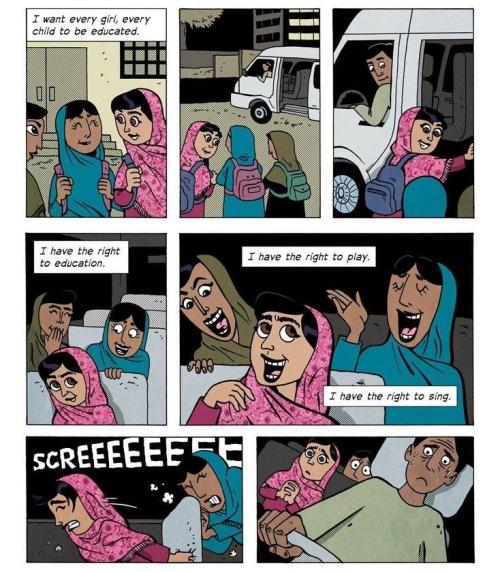

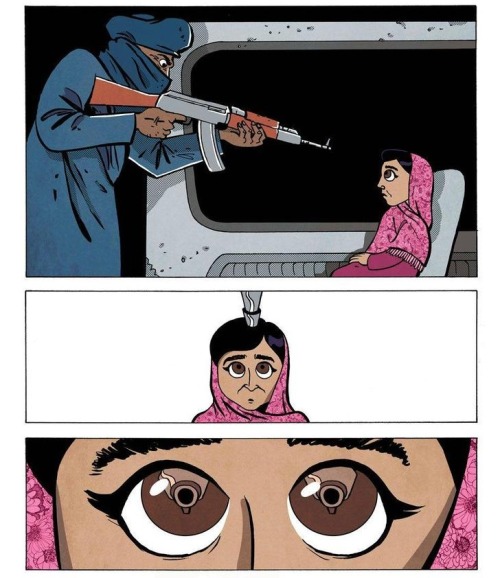
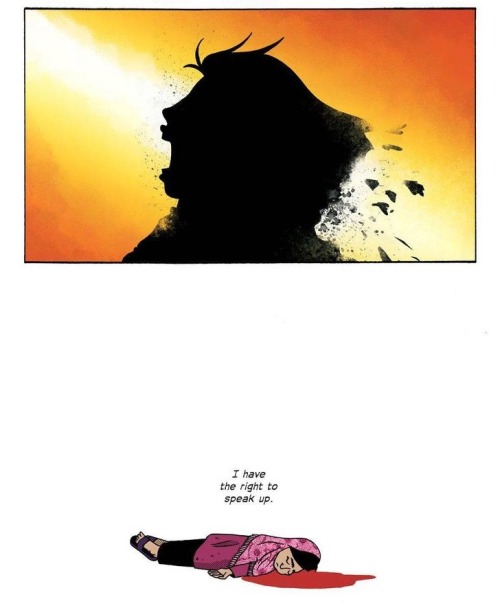
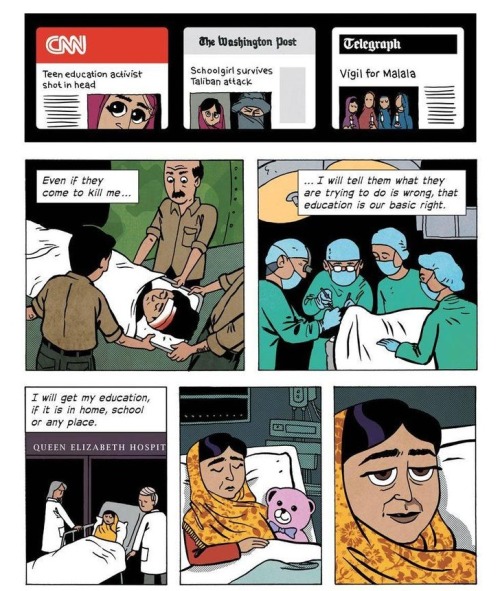

A version for tumblr that can be read without opening a new tab, since plenty of people would scroll past this story otherwise.
lmao i lost at least 7 followers after reblogging that…. anyway if you exclude nonbinary people you’re ignoring the white stripe of the trans flag; aces and aros are not straight and thus lgbt+ because theyre literally not attracted to the opposite sex, trans women are real women, and physical dysphoria is not required to be considered trans
-
 eternalparadisearchive reblogged this · 2 weeks ago
eternalparadisearchive reblogged this · 2 weeks ago -
 chaoticsumi liked this · 3 weeks ago
chaoticsumi liked this · 3 weeks ago -
 reblogapalooza reblogged this · 1 month ago
reblogapalooza reblogged this · 1 month ago -
 gooseygooseyartstuff liked this · 1 month ago
gooseygooseyartstuff liked this · 1 month ago -
 wander-over-the-words reblogged this · 1 month ago
wander-over-the-words reblogged this · 1 month ago -
 xx-k1tsun3-k1d-xx liked this · 1 month ago
xx-k1tsun3-k1d-xx liked this · 1 month ago -
 localbeeking liked this · 1 month ago
localbeeking liked this · 1 month ago -
 ceerarayhne reblogged this · 1 month ago
ceerarayhne reblogged this · 1 month ago -
 newdawnhorizon reblogged this · 1 month ago
newdawnhorizon reblogged this · 1 month ago -
 diceroulette reblogged this · 1 month ago
diceroulette reblogged this · 1 month ago -
 styxnbonez reblogged this · 1 month ago
styxnbonez reblogged this · 1 month ago -
 gamesucks liked this · 1 month ago
gamesucks liked this · 1 month ago -
 tinycorvidae reblogged this · 1 month ago
tinycorvidae reblogged this · 1 month ago -
 scarecrowsoup reblogged this · 1 month ago
scarecrowsoup reblogged this · 1 month ago -
 scarecrowsoup liked this · 1 month ago
scarecrowsoup liked this · 1 month ago -
 gengar467 liked this · 1 month ago
gengar467 liked this · 1 month ago -
 willystamplerstits reblogged this · 1 month ago
willystamplerstits reblogged this · 1 month ago -
 icy-book reblogged this · 1 month ago
icy-book reblogged this · 1 month ago -
 crabknight reblogged this · 1 month ago
crabknight reblogged this · 1 month ago -
 crabknight liked this · 1 month ago
crabknight liked this · 1 month ago -
 lynns-art-blog liked this · 1 month ago
lynns-art-blog liked this · 1 month ago -
 meowmedusa reblogged this · 1 month ago
meowmedusa reblogged this · 1 month ago -
 meowmedusa liked this · 1 month ago
meowmedusa liked this · 1 month ago -
 mthevlamister reblogged this · 1 month ago
mthevlamister reblogged this · 1 month ago -
 mthevlamister liked this · 1 month ago
mthevlamister liked this · 1 month ago -
 greiiliss reblogged this · 1 month ago
greiiliss reblogged this · 1 month ago -
 puzzledemigod reblogged this · 1 month ago
puzzledemigod reblogged this · 1 month ago -
 soppstop reblogged this · 1 month ago
soppstop reblogged this · 1 month ago -
 soppstop liked this · 1 month ago
soppstop liked this · 1 month ago -
 avioletmage liked this · 1 month ago
avioletmage liked this · 1 month ago -
 pearlescentbubbles liked this · 1 month ago
pearlescentbubbles liked this · 1 month ago -
 selfdiagnosedeyemotif reblogged this · 1 month ago
selfdiagnosedeyemotif reblogged this · 1 month ago -
 hero-dualies-pog reblogged this · 1 month ago
hero-dualies-pog reblogged this · 1 month ago -
 tang0w0tek reblogged this · 1 month ago
tang0w0tek reblogged this · 1 month ago -
 tang0w0tek liked this · 1 month ago
tang0w0tek liked this · 1 month ago -
 dr-alphys-lizard-mug liked this · 1 month ago
dr-alphys-lizard-mug liked this · 1 month ago -
 tokyo-the-friggin-capital liked this · 2 months ago
tokyo-the-friggin-capital liked this · 2 months ago -
 glaciermice liked this · 2 months ago
glaciermice liked this · 2 months ago -
 jesterpanic liked this · 2 months ago
jesterpanic liked this · 2 months ago -
 elesdecroisa liked this · 2 months ago
elesdecroisa liked this · 2 months ago -
 feli026 reblogged this · 2 months ago
feli026 reblogged this · 2 months ago -
 feli026 liked this · 2 months ago
feli026 liked this · 2 months ago -
 summerlimeismethebrony liked this · 2 months ago
summerlimeismethebrony liked this · 2 months ago -
 linde121 liked this · 2 months ago
linde121 liked this · 2 months ago -
 munchkinfox reblogged this · 2 months ago
munchkinfox reblogged this · 2 months ago -
 munchkinfox liked this · 2 months ago
munchkinfox liked this · 2 months ago -
 lukedanger reblogged this · 2 months ago
lukedanger reblogged this · 2 months ago -
 lukedanger liked this · 2 months ago
lukedanger liked this · 2 months ago -
 floressas liked this · 3 months ago
floressas liked this · 3 months ago -
 definitelynotabanana reblogged this · 3 months ago
definitelynotabanana reblogged this · 3 months ago
